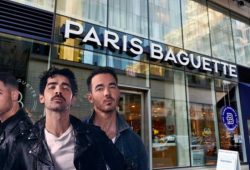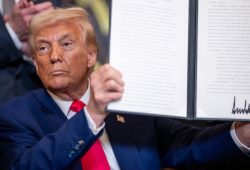Brand partnerships with influencers have been in the news recently, and not just for the right reasons. Two significant brands, Bud Light and Nike, have faced conservative backlash over their collaborations with transgender influencer Dylan Mulvaney. The controversy started when Anheuser-Busch, the parent company of Bud Light, sent a commemorative can of beer with Mulvaney’s face on it, celebrating her transition journey chronicled in her TikTok series “365 Days of Girlhood.” Mulvaney posted a promotional video on Instagram for a contest for Bud Light, using the hashtag #budlightpartner. In response, conservative groups in the US called for a boycott of both Bud Light and Anheuser-Busch.
Similarly, in the UK, some women have called for a boycott of Nike after Mulvaney posted a new paid partnership with the athletics brand. The former Olympic swimmer Sharron Davies said that the partnership was “a kick in the teeth” and hypocritical considering Nike’s meager financial contribution to women’s sports. While the controversy surrounding Bud Light and Mulvaney has ignited conservative hatred, the Nike boycott is more nuanced, with the debate over whether trans athletes should be allowed to compete in categories that align with their gender identity still ongoing.
What was the response of Bud Light and Nike to the controversy?
Anheuser-Busch InBev has announced a change in marketing leadership for Bud Light following controversy over the brand’s sending a can with the face of transgender influencer Dylan Mulvaney on it. Marketing VP Alissa Heinerscheid has taken a leave of absence, and Todd Allen, formerly global marketing VP for Budweiser, will take over. The company has also streamlined its marketing function to reduce layers and maintain a focus on brewing great beer while making a positive impact in communities and on the country. The company has communicated these steps to internal teams and wholesaler partners, prioritizing the safety and welfare of employees and partners.
Nike has defended its partnership with transgender TikTok star Dylan Mulvaney and its commitment to diversity and inclusion, but has faced criticism from both sides of the Atlantic, including calls for a boycott of its products. Despite this, the brand has not addressed the controversy further.
What should brands must learn?
The backlash against the brand partnerships with Mulvaney has highlighted the cultural tensions between conservative and progressive forces in society. It has also raised the question of why brands are getting more progressive, featuring trans people in their marketing, even as recently as a few years ago, something that would have been unthinkable. The answer lies in the growing chunk of the global public who identifies as non-heteronormative. The LGBTQI+ community represents approximately 9% of the global population, according to a recent survey, and that figure doubles among Gen Z respondents.
For brands, this means the LGBTQI+ community is an untapped market with significant cash potential. The community represents about $3.9 trillion in purchasing power globally, and brands are starting to take note. By featuring transgender influencers in their marketing, brands are not only appealing to this demographic but also signalling their inclusivity to a wider audience.
The controversy surrounding Mulvaney’s association with Bud Light and Nike has become the latest flashpoint in the US culture wars, igniting conservative hatred on and offline against both Mulvaney and Anheuser-Busch over their partnership. Some celebrities, including Kid Rock, Ted Nugent, Travis Tritt, and John Rich, have spoken out against Bud Light’s backing of Mulvaney. Country musician Travis Tritt has even removed Bud Light from his tour hospitality rider. British former Olympic swimmer Sharron Davies has called for a boycott of Nike products over what she called a “kick in the teeth”.










